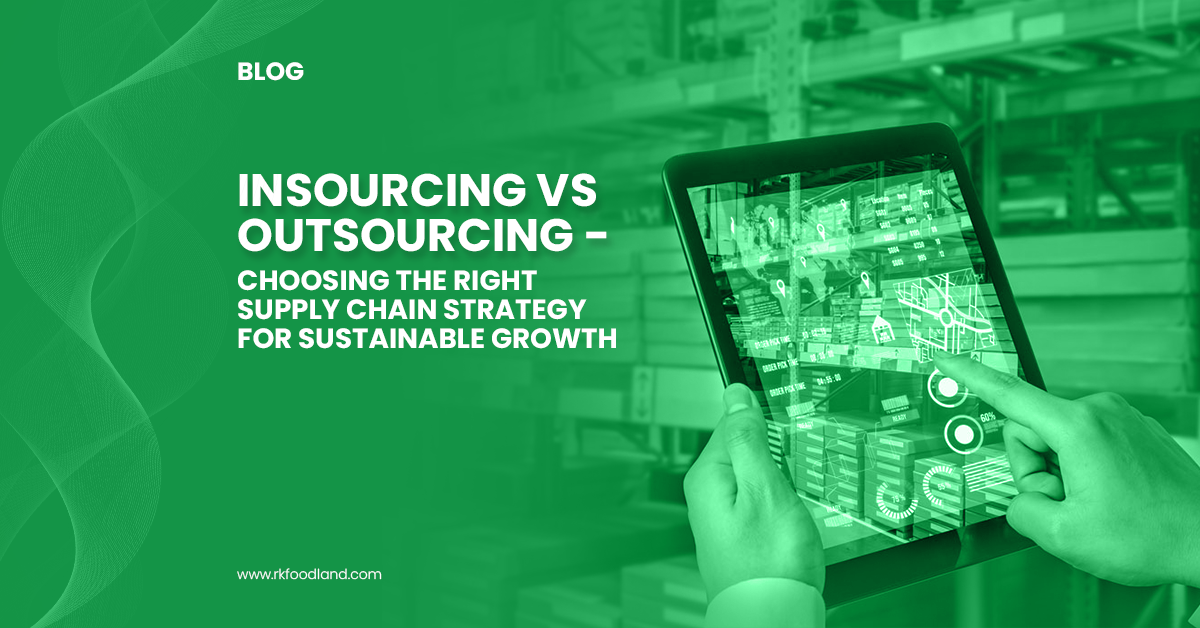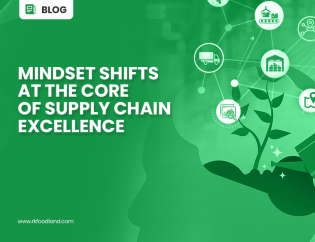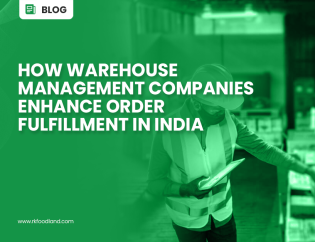
[Avg. Read Time < 3 mins.]
Globalization, digitalization, and rapidly evolving customer expectations demand a shift in how leaders approach their SCM strategy. In today’s BANI environment the task for supply chain leaders is to know how they can help achieve the desired business goals. In short, the SCM strategy should flow directly from the business strategy. And that means decision makers should consider how optimizing the supply chain can support overarching enterprise goals. Businesses are constantly evaluating whether to insource or outsource their supply chain operations to maximize efficiency and effectiveness. But what are the primary benefits and drawbacks of developing supply chain capabilities in-house or opting for external solutions? And at what point does outsourcing become a sound business decision? This blog explores the challenges and limitations of in-house SCM operations, and why it is important to have realistic objectives when considering SCM outsourcing as a solution to gain the desired outcomes.
In-House Supply Chain Development: Balancing Control and Resource Limitations
When it comes to developing supply chain capabilities in-house, businesses have the opportunity to gain greater control over their operations, costs, customize processes, and tap into existing knowledge and expertise within their organization. However, these advantages can be counterbalanced by limited resources and expertise, difficulty keeping up with industry trends and technology solutions, delays in implementation due to internal processes, scalability issues as the business grows, high start-up costs for new projects or services, and difficulty finding suitable staff. This ultimately results in delayed delivery times or increased costs.
Outsourcing Supply Chain Functions: Leveraging Expertise and Cost-Efficiencies
Conversely, outsourcing offers cost-efficiencies that can help organizations reduce expenses while still achieving desired results. Outsourcing gives businesses access to specialist global expertise within the supply chain domain; it also provides scalability and flexibility that can boost operations as demand increases. In addition to saving money on resources such as labour costs and equipment investments, there are also reduced risks associated with outsourcing. Companies can benefit from improved service levels when working with trusted providers who specialize in certain areas like transportation management or warehousing services.
Integrating Operational Needs with Organizational Objectives for Effective SCM Strategies
Despite the potential benefits of outsourcing supply chain functions however it is important for companies to have realistic objectives when considering external solutions – this doesn’t simply mean running a quick cost comparison between in-house versus outsourced models. For many organizations transitioning from one model to another requires significant planning and investment of time. They must also consider how best to align strategies with core business objectives. Most importantly success depends on finding a trusted partner who understands the specific needs as well as any regulatory requirements relevant to their industry or market.
Considering Short-Term and Long-Term Goals in Supply Chain Decision Making
Ultimately, whether businesses choose an in-house model or opt for outsourced solutions will depend on both short-term goals such those related to cost reduction or increased efficiency; but also, long term ones including strategic direction related to growth plans or risk management strategies. By considering all aspects of their unique situation – from operational needs to organizational objectives – companies can make sure they get the most value out of their investments when it comes to supply chain decisions.
Stay tuned for our upcoming blog, where we will deep dive into the benefits and drawbacks of both supply chain insourcing and outsourcing and learn how choosing the right strategy can contribute to your business’s long-term success.
Empower yourself with “Unlocking Growth with the Right Supply Chain Strategy: A Guide to Insourcing and Outsourcing for Food Businesses”, to thoroughly evaluate your supply chain capabilities and determine the optimal strategy for your business – should you insource or outsource your SCM operations? This guide will help you to make informed decisions based on factors such as efficiency, scalability, assurance, cost, technology, people, risk and compliance. Take charge of your supply chain and drive your business towards greater success by leveraging our expert guidance.
Come partner with RK Foodland and gain access to our 35 years of experience and knowledge in supply chain management. Our 3PL and 4PL capabilities are suitable for all types and scales of businesses, so you can be confident that your supply chain operations will be managed efficiently and effectively.
We are committed to delivering results that go beyond supply chain operations and give you the competitive edge – let us partner for your growth.
Related Content | Foodland’s Resources
7 reasons why you should outsource your Supply Chain
Logistics Outsourcing Calls for Robust Data Portfolios to Create Enduring Supply Chains
How to Implement Successful Change Initiatives in Your Supply Chain









